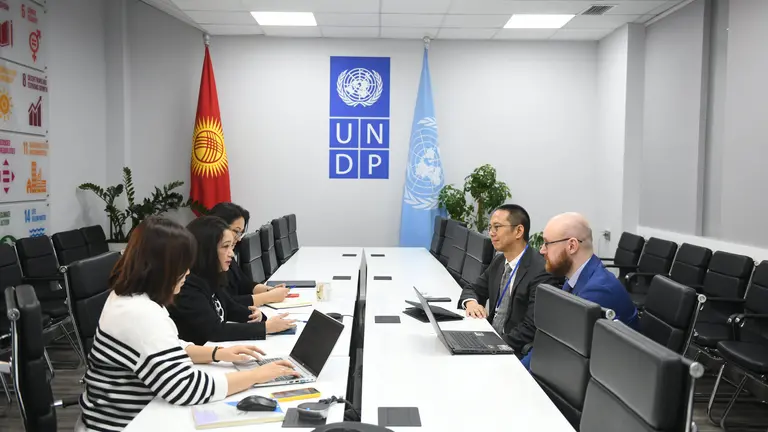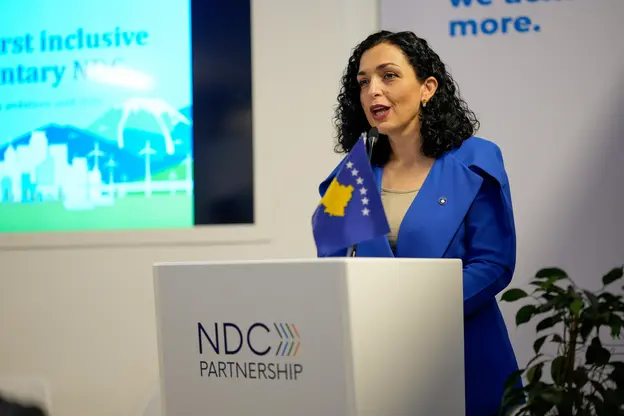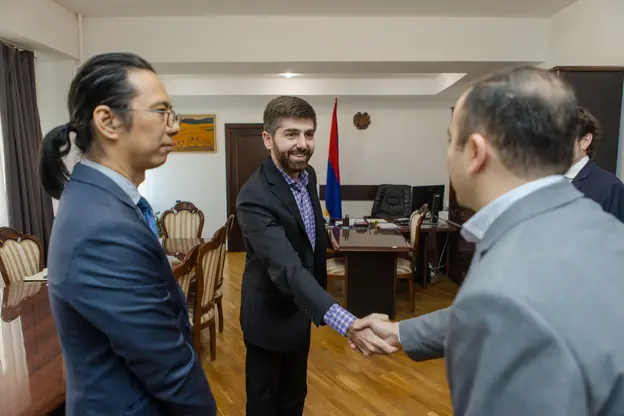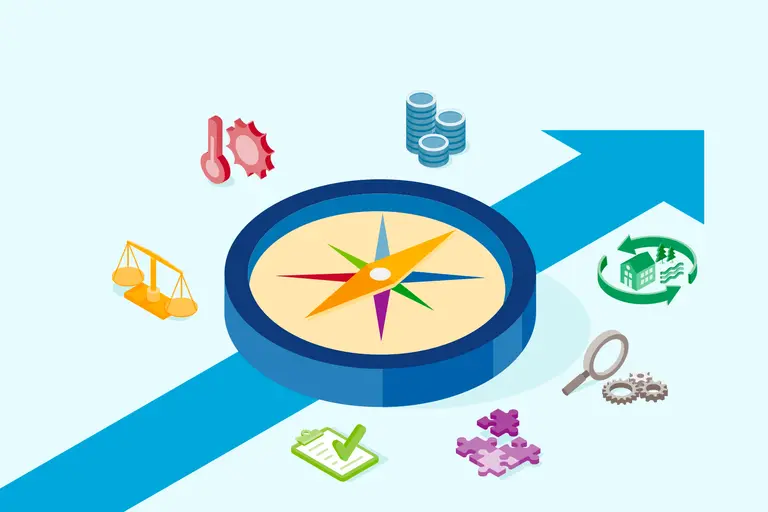
Global Call for NDCs 3.0 & LT-LEDS
Supporting Countries in Developing NDCs 3.0 and LT-LEDS
The Global Call for NDCs 3.0 & LT-LEDS is the NDC Partnership’s primary mechanism for supporting countries with NDC 3.0 and LT-LEDS development.
The NDC Partnership has coordinated support from over 40 partners, mobilizing more than USD 50 million in technical assistance and helping over 70 countries in their ambition-raising efforts.
To date, nearly every country that has requested NDC Partnership support for NDC 3.0 & LT-LEDS development has received it. As countries continue requesting support for NDC 3.0 development, the NDC Partnership works quickly to ensure all countries receive technical assistance through partners’ own funding or the Partnership Action Fund (PAF) as a last resort.
The NDC Partnership addresses gaps, reduces duplication and makes the most of available resources, with the Support Unit tracking and aligning partner support.
Catalyzing Coordinated Climate Action Through the Global Call
Through the Global Call, partners mobilize expertise and resources to support countries in shaping NDCs 3.0 and developing or refining Long-Term Low Emissions Development Strategies (LT-LEDS).
By aligning these two instruments, countries catalyze the transformational changes needed to reach net-zero by 2050 and drive long-term sustainable development.
The NDC Partnership Support Unit collaborates with key partners to track support and quickly fill gaps that align with their programming. With over 70 countries having requested NDC and LT-LEDS support through the Global Call, the NDC Partnership has comprehensive, real-time intelligence regarding country needs and support gaps.

How to Engage
Implementing Partners
The NDC Partnership Support Unit circulates information on countries’ requests every six weeks. Implementing partners can convey their interest in supporting countries with their own resources within a month of the circulation.
Dedicated teams within the Support Unit also have real-time intelligence on support gaps, ensuring interested partners can engage swiftly and strategically. Implementing partners can ask to stay updated on support gaps. Similarly, organizations interested in supporting countries in their NDC 3.0 and LT-LEDS development that are not currently a member of the Partnership can reach out via the contact details below.
In cases where implementing partners are unable to meet the demand, the request for support then becomes eligible for funding from the Partnership Action Fund (PAF).
The NDC Partnership has baseline agreements with key first responder Institutional Members with technical capacity but limited financial resources. Under these agreements, they can access PAF to support countries that have not received support from other partners. The NDC Partnership is not an implementing agency and, as such, PAF is a last-resort alternative.
Developing Country Members
Developing Country Members can initiate requests for support by completing the Pre-Screening Form (PSF) on a rolling basis until the third quarter of 2025.
Please note that requests must come from the Focal Point of a Partnership Country Member to be considered. Visit the members page for information on how to become a member.

Contact
If you have questions or would like to engage in the Global Call, please contact globalcall@ndcpartnership.org.

Frequently Asked Questions
- What types of support do countries request under the Global Call?
-
To get a sense of the type of requests submitted through the Global Call, you can visit an online compilation of requests. You can also contact globalcall@ndcpartnership.org with specific questions.
- Which NDC Partnership members and partners are providing support through the Global Call?
-
To date, over 40 partners are actively supporting countries through the Global Call, including:
- 2050 Pathways
- Enabel
- The German Federal Foreign Office (AA)
- The Asian Development Bank (ADB)
- The Agence Française de Développement (AFD)
- The African Development Bank Group (AfDB)
- The Federal Ministry for the Environment, Nature Conservation, Nuclear Safety and Consumer Protection (BMUV)
- The German Federal Ministry for Economic Affairs and Climate Action (BMWK)
- The German Development Ministry (BMZ)
- Canada
- Climate Action Africa (CAA)
- Climate Analytics
- The European Union (EU)
- The Food and Agriculture Organization (FAO)
- The Foreign, Commonwealth & Development Office (FCDO), UK
- The Global Climate Action Partnership (GCAP)
- The Green Climate Fund (GCF)
- The Global Green Growth Institute (GGGI)
- The Deutsche Gesellschaft für Internationale Zusammenarbeit (GIZ)
- Global Affairs Canada
- The Initiative for Climate Action Transparency (ICAT)
- The Inclusive Climate Finance for Vulnerable Communities in the Asia Pacific (ICCAP)
- The Local Governments for Sustainability (ICLEI)
- The Inter-American Development Bank (IDB)
- The International Climate Initiative (IKI)
- The International Labour Organization (ILO)
- The International Renewable Energy Agency (IRENA)
- The NAP Global Network
- The National Renewable Energy Laboratory (NREL)
- The Pew Charitable Trust
- Perspectives Climate Research GmbH (PCR)
- The UN Sustainable Development Solutions Network (SDSN)
- The Support Project for the Implementation of the Paris Agreement (SPA)
- Ministry of Foreign Affairs of the Netherlands
- The United Nations Development Programme (UNDP)
- The United Nations Office of Disaster Risk Reduction (UNDRR)
- The United Nations Environment Programme (UNEP)
- The United Nations High Commissioner for Refugees (UNHCR)
- The United Nations Children’s Fund (UNICEF)
- The United Nations Institute for Training and Research (UNITAR)
- UN-Habitat
- The Flemish Institute for Technological Research (VITO)
- The World Bank (WB)
- The World Resources Institute (WRI)
- The World Wide Fund for Nature (WWF)
- What support can countries access through the Global Call?
-
Country Members access technical expertise and experience from the NDC Partnership to:
- Determine immediate country needs for the development of NDCs 3.0, leveraging the NDC 3.0 Navigator.
- Assess previous NDCs and plan and develop NDCs 3.0 and LT-LEDS.
- Align NDCs 3.0 and LT-LEDS, along with other key national planning documents like development plans and National Adaptation Plans (NAPs).
- Mobilize financial resources to engage technical support from partners through the Partnership Action Fund (PAF).
- Share lessons learned and best practices leading to high-quality, ambitious and implementable NDC.
- Who is eligible to receive support from the NDC Partnership?
-
NDC Partnership developing Country Members are eligible for direct, tailored expertise, technical assistance and funding.
- Can Country Members submit multiple requests for support?
-
Developing Country Members can submit multiple requests for support on a rolling basis until the third quarter of 2025. They can place subsequent requests on a rolling basis as they progress in the development of their NDC and LT-LEDS development.
Please note that requests must come from the Focal Point of a Partnership Country Member to be considered. Visit the NDC Partnership members page for information on how to become a member of the NDC Partnership.
- What is the typical timeframe for receiving support, and how long does the entire process take?
-
Country requests are circulated approximately every six weeks. Partners then have one month to respond with expressions of interest, at which point countries and partners typically connect to discuss the scope of support.
Countries that did not receive support are eligible to submit their requests through the Partnership Action Fund (PAF) for circulation. Then, they are subject to the PAF process timelines. The timeline for starting implementation varies depending on the country context, government engagement and partner response, among other factors. While emphasizing an urgent timeline for support under the Global Call given the tight timeline for NDC 3.0 submissions, the NDC Partnership is not an implementing agency and is subject to its members’ timelines.
- What is the NDC 3.0 Navigator, and how can I access it?
-
The NDC 3.0 Navigator is an interactive online tool that helps developing countries explore nationally relevant approaches to preparing ambitious NDCs, raising ambition and addressing implementation and financing needs for stronger NDCs 3.0. The Navigator is self-directed and non-prescriptive, building on currently available support and resources and will be further developed over time as additional guidance becomes available. It complements the technical support from the NDC Partnership by helping countries identify support needs and submit high- quality and comprehensive requests for NDC development, to be supported through the NDC Partnership.
The Navigator presents a set of guiding questions that helps countries reflect on their current national circumstances, climate ambition and wider development goals to identify nationally appropriate opportunities for developing ambitious and implementable NDCs. Based on a country's answers to the guiding questions, the Navigator suggests “Routes to Ambitious and Implementable NDCs” for the country to explore.
Users are encouraged to submit guidance and case studies for consideration NDC 3.0 Navigator form to share additional resources.